Azure Cosmos DB wrap-up: May 2020 BUILD Announcements
For BUILD 2020, we were excited to announce some truly amazing new features and capabilities to help you quickly and easily develop cloud-native apps of any size. We hope you really enjoyed hearing and seeing everything we announced. But I bet you may not have seen everything. So read below for a full recap. Also, if you missed any of our sessions, you can now watch them on-demand including, Building scalable and secure applications with Azure Cosmos DB and Building real-time HTAP analytics solutions with Azure Cosmos DB & Azure Synapse Analytics.
Announcing Azure Synapse Link for Azure Cosmos DB now in preview
Get near real-time insights on operational data with Azure Cosmos DB with Azure Synapse Link, a cloud native hybrid transactional and analytical processing (HTAP) capability. Azure Synapse Link creates a tight integration between Azure Cosmos DB and Azure Synapse Analytics. Using the Azure Cosmos DB analytical store, a fully isolated column store, Azure Synapse Link enables no-ETL (extract-transform-load) analytics in Azure Synapse Analytics against globally distributed operational data at scale. Business analysts, data engineers and data scientists can now use Synapse Spark or Synapse SQL to run near real-time business intelligence, analytics and machine learning pipelines without impacting the performance of their transactional workloads on Azure Cosmos DB.
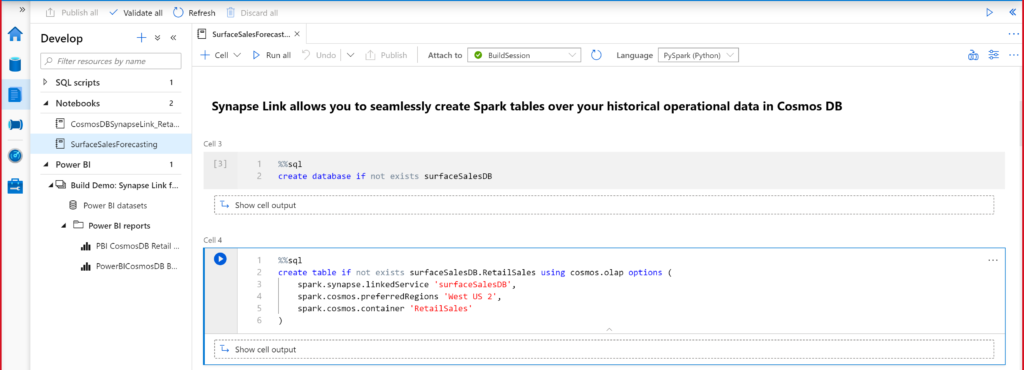
Azure Cosmos DB analytical store will be available in public preview without charge for consumed storage GBs or storage transactions through August 30, 2020. Usage of Synapse Spark and Synapse SQL will be billed through Azure Synapse service consumption. To learn more read the Azure Synapse Link for Azure Cosmos DB blog post. Also be sure to watch our Azure Synapse Link for Azure Cosmos DB session now available on demand.
Autoscale provisioned throughput for Azure Cosmos DB now generally available
Now in general availability, autoscale provisioned throughput (called “autopilot mode” in preview) is a new pricing model for Azure Cosmos DB. With autoscale, SLAs are maintained while the service automatically and instantly scales up to a customer-specified maximum to meet the needs of unpredictable, high-throughput workloads. Autoscale eliminates the need to monitor capacity and can be paired with Azure Cosmos DB free tier.
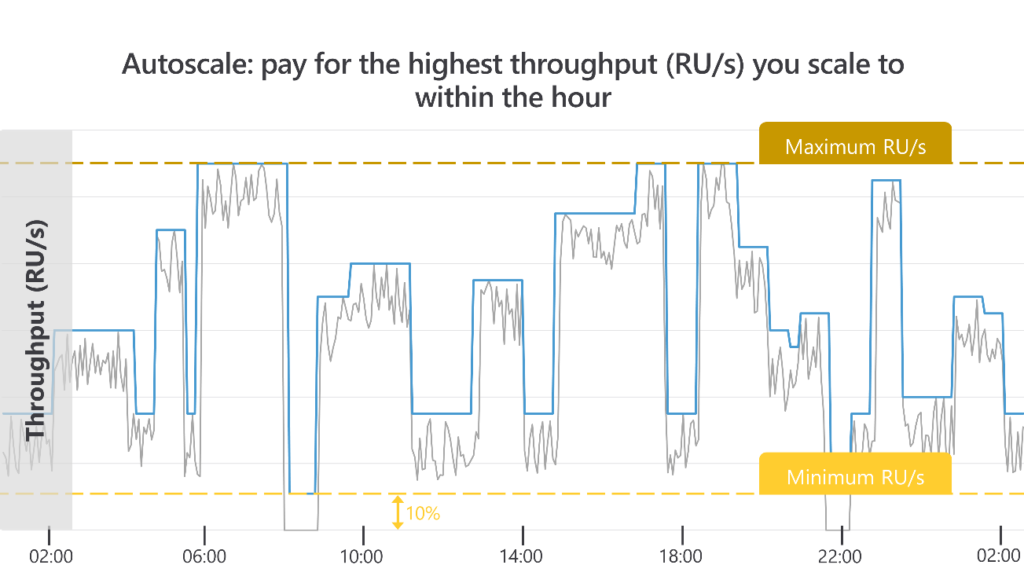
We are introducing several new features and capabilities at GA including, the ability to set a custom maximum provisioned throughput level in request units (RU/s), enable autoscale on existing databases and containers, and programmatic support through Azure Cosmos DB SDKs and Azure Resource Manager templates. Azure CLI and PowerShell support will be available in the coming months.
Next steps:
- Learn more by reading our Autoscale for Azure Cosmos DB blog post.
- Watch our session Building scalable and secure applications with Azure Cosmos DB
- Try out autoscale on a database or container.
- Visit the pricing page.

Encryption at rest with customer managed keys on Azure Cosmos DB in general availability
Customer managed keys give users total control over the keys used by Azure Cosmos DB to encrypt their data at rest, and addresses demands from users with specific security and compliance requirements. Built as an additional encryption layer on top of the Azure Cosmos DB default encryption at rest with service managed keys, it leverages Azure Key Vault to store encryption keys and provides a way for customers to implement double encryption. Learn more by reading our Enhanced encryption at rest with customer-managed keys blog post.
New features for Azure Cosmos DB built-in Jupyter Notebook support
Now in preview, several new features are available for Azure Cosmos DB built-in Jupyter Notebooks. These features make it easier for developers and data scientists to analyze and visualize their Azure Cosmos DB data. You can now author and run C# notebooks from Data Explorer. The environment includes a built-in instance of the Azure Cosmos DB .NET SDK for easy access to the data, and you can import your own NuGet packages as needed.
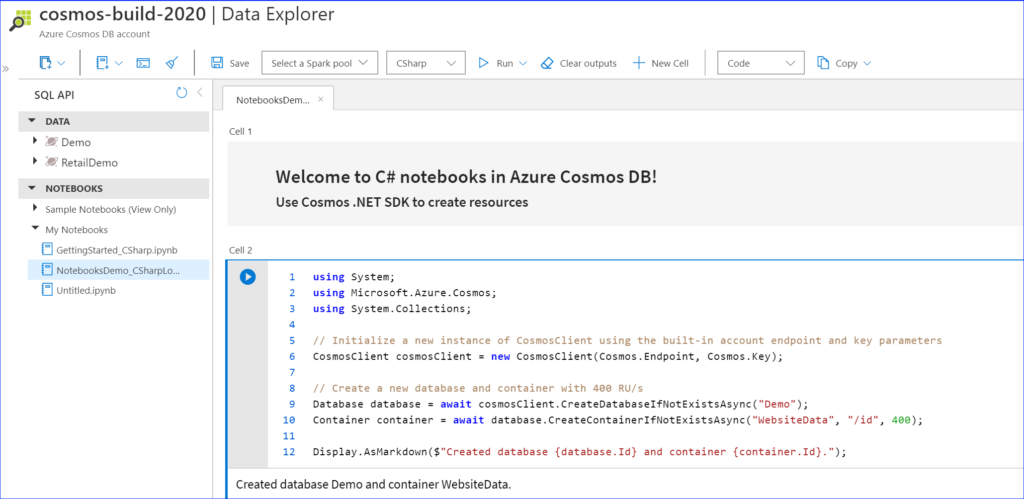
To make it easier to collaborate and share notebooks, you can connect your notebook workspace to a GitHub repository. After connecting, your GitHub notebooks will be available to view, run, and edit in your workspace. You can save the changes directly to GitHub, all conveniently from within Azure Data Explorer. We’ve also added a new samples gallery to show you all available samples in one place. The gallery includes a new C# notebook quickstart, a new machine learning/predictive maintenance sample, and samples to help you learn Azure Cosmos DB concepts.
Enable Jupyter Notebook support today and try out these new features with your Azure Cosmos DB account. Want to contribute a sample? Send us a pull request on our GitHub repo.
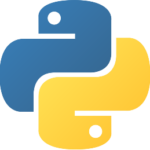
Azure Cosmos DB Python SDK 4.0 for Core (SQL) API now in general availability
Version 4.0 of the Azure Cosmos DB Python SDK is now in general availability. This latest version includes usability improvements to the object model for a better developer experience, support for new query features, bug fixes, and more. The SDK is fully open-source and developed using the Azure SDK Python guidelines. Get started with the latest SDK today or try it out in the context of Azure Cosmos DB built-in Jupyter Notebook support. Review our release notes for a full list of usability improvements with Azure Cosmos DB Python SDK version 4.0.
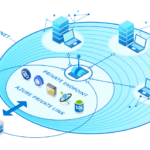
Azure Private Link for Azure Cosmos DB now in general availability
Azure Private Link provides private connectivity from a virtual network to Azure platform as a service (PaaS) services. It simplifies the network architecture and secures the connection between endpoints in Azure by eliminating data exposure to the public internet. With Private Link, users connect to Azure Cosmos DB from their virtual network via a private endpoint, which is a set of private IP addresses in a subnet within the virtual network. They can then limit access to their Azure Cosmos DB account over these private IP addresses. Private Link helps reduce the risk of data exfiltration when combined with restricted network security group (NSG) policies.
Coming soon: Azure Cosmos DB change feed deletes and update retention preview
We are excited to announce that in the coming months, the Azure Cosmos DB change feed for SQL API will contain deletes and all updates. The change feed currently contains writes and only the last version of each document. Adding support for deletes and all updates will make it even easier for customers to utilize the change feed and do real-time data movement or build a materialized view.
Coming soon: Azure Cosmos DB serverless preview
Azure Cosmos DB serverless will be launching in preview in the coming months. It is ideal for spiky workloads and complements the existing provisioned throughput pricing model. Azure Cosmos DB serverless eliminates the concept of provisioned throughput and significantly lowering the entry price for customers. Customers are billed for resources consumed per operation. This offer specifically addresses workloads that don’t require steady throughput. Or workloads that receive requests sporadically or in short bursts, and have moderate performance requirements. Learn more by watching our Azure Cosmos DB video on our offerings.
Coming soon: Azure Cosmos DB to add point-in-time-restore (PITR) preview
Azure Cosmos DB will be adding a preview of point-in-time-restore (PITR) to its backup and restore capabilities in the upcoming months. PITR protects against accidental writes or deletes and enables continuous backups of Azure Cosmos DB data. This feature can be enabled for new containers and accounts during the preview time frame. Once enabled, customers can recover a container from continuous backup at any point in time from the moment you enable it up to 35 days.
We hope you’re excited about all the new features. To learn more or get started visit, https://azurecosmosdb.com today.
About Azure Cosmos DB
Azure Cosmos DB is a fully managed NoSQL database for modern app development.
Single-digit millisecond response times, and automatic and instant scalability, guarantee speed at any scale. Business continuity is assured with SLA-backed 99.999% availability and enterprise-grade security. App development is faster and more productive thanks to turnkey multi-master data distribution anywhere in the world, open source APIs and SDKs for popular languages.

 Light
Light Dark
Dark
2 comments
Great summary. You may want to check the certificate of the URL you provide: https://azurecosmosdb.com I get an ugly “Warning: Potential Security Risk Ahead”.
Wow thanks Richard. I see that now too. The URL and cert are Microsoft’s. I will get someone to check that now.
Thanks for reporting.